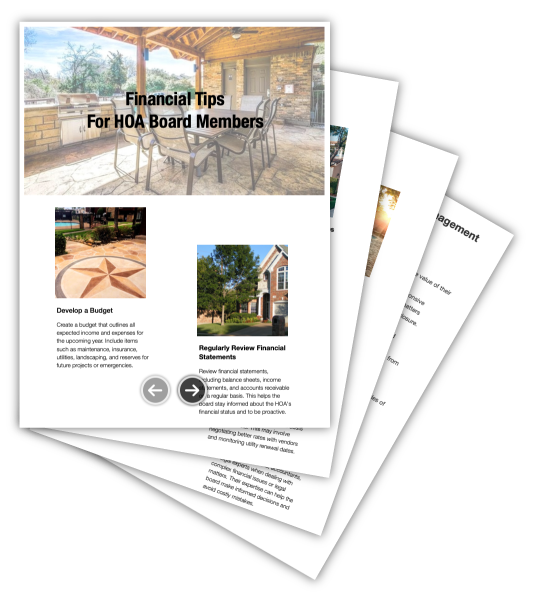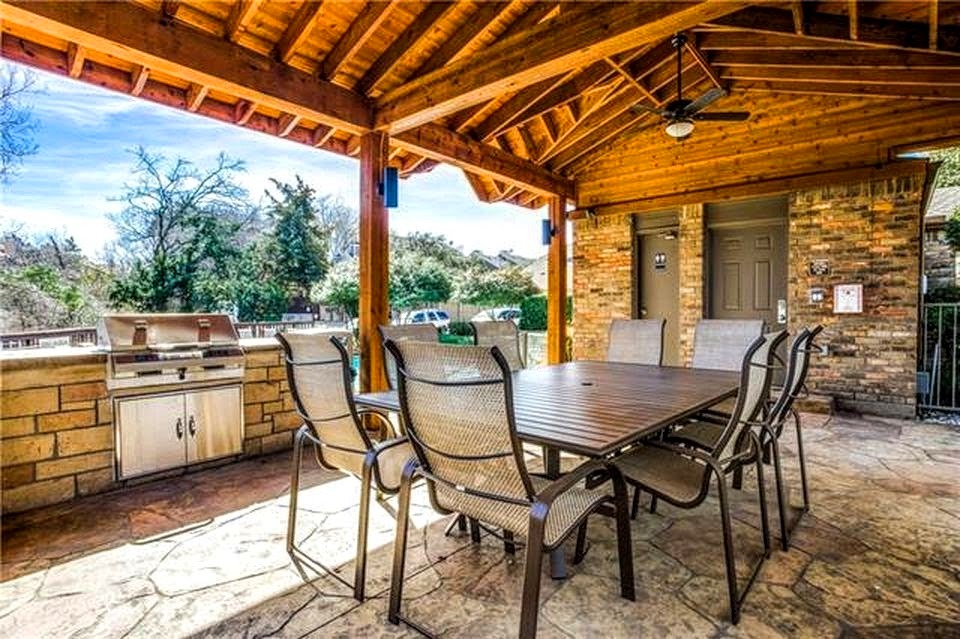How HOA Board Members Can Develop an Effective Budget
As a member of a homeowners association (HOA) board, one of your most important responsibilities is to create and manage a budget that ensures the financial health of your community. A well-crafted budget not only covers day-to-day expenses but also prepares for unexpected costs and long-term projects.
Here’s a step-by-step guide to help you develop an effective HOA budget.
1. Assess Current Financial Standing
Before diving into the budgeting process, take a close look at the HOA’s current financial status. Review the previous year’s budget, financial statements, and bank balances. Identify any areas where the association overspent or underspent, and note any unexpected expenses that arose. This will give you a clear picture of where the HOA stands financially and help you plan for the upcoming year.
2. Gather Necessary Information
Collect all the necessary information to build a comprehensive budget. This includes:
– Income Sources: List all expected income sources, such as homeowner dues, fines, interest income, and any rental income from common areas or amenities.
– Recurring Expenses: Include regular expenses like utilities, insurance, landscaping, maintenance, and management fees.
– Variable Expenses: Consider expenses that may fluctuate, such as repairs, legal fees, and special projects.
– Reserve Fund Contributions: Plan for contributions to the reserve fund, which is essential for covering major repairs and replacements in the future.
3. Identify Fixed and Variable Costs
Differentiate between fixed and variable costs within the HOA’s expenses:
– Fixed Costs: These are predictable and consistent, such as insurance premiums, landscaping, management fees, and scheduled maintenance contracts. Include these in your budget as they are less likely to change.
– Variable Costs: These are expenses that can vary from month to month, like utility bills, repair costs, and landscaping needs. Estimate these costs based on past expenditures and potential future needs.
4. Plan for Contingencies and Emergencies
Every budget should include a contingency fund to cover unexpected expenses. Set aside a portion of the budget for emergencies, such as storm damage, legal issues, or sudden repairs. Having a contingency plan in place ensures that the HOA can handle unforeseen events without causing financial strain on the community.
5. Allocate Funds for Reserve Contributions
A healthy reserve fund is crucial for the long-term financial stability of the HOA. This fund is used to cover major capital expenditures, such as roof replacements, road repairs, and other large-scale projects. Conduct a reserve study to determine how much should be set aside each year to ensure the HOA is adequately prepared for these expenses.
6. Review and Adjust as Necessary
Once you’ve drafted the budget, review it carefully with the board members. Make sure that all essential expenses are covered and that the budget aligns with the community’s financial goals. If necessary, adjust the budget to better meet the HOA’s needs.
7. Communicate the Budget to Homeowners
Once the budget is finalized, communicate it to homeowners through newsletters, emails, or a community meeting. Explain how the budget was developed, how funds will be allocated, and any changes to dues or fees.
8. Monitor and Update Throughout the Year
The budgeting process doesn’t end once the budget is approved. Monitor the HOA’s finances regularly throughout the year to ensure that expenses are staying within budget. If necessary, make adjustments to account for unexpected costs or changes in income. Regular financial reviews help keep the HOA on track and allow for proactive management of the community’s finances.
Conclusion
Developing an effective HOA budget requires careful planning, collaboration, and ongoing oversight. By following these steps, HOA board members can create a budget that not only meets the community’s current needs but also ensures its financial stability for years to come. A well-managed budget is the foundation of a thriving and well-maintained community, providing homeowners with the peace of mind that their investments are being protected. Remember, a budget is a guide and if a large unexpected expense occurs, the Board can make an adjustment to defer some items.
FREE DOWNLOAD
Financial Tips for HOA Board Members
Ten insights that help board members have peace of mind.
- Developing a budget to monitoring expenses
- Maintaining adequate reserves to communicating transparency

Get your copy now...
Property management, Plano property management, Dallas property management, Frisco property management, McKinney property management, Prosper property management, Anna property management, Bedford property management, Eulless property management, Hurst property management, Coppell property management, Forney property management, Fort Worth property management.
